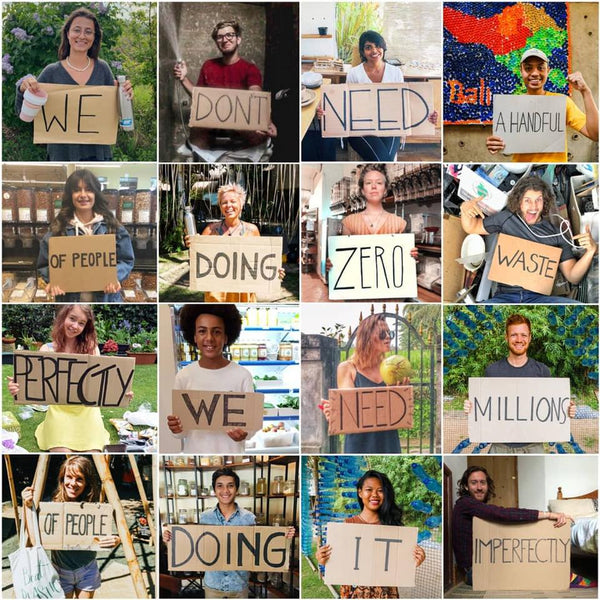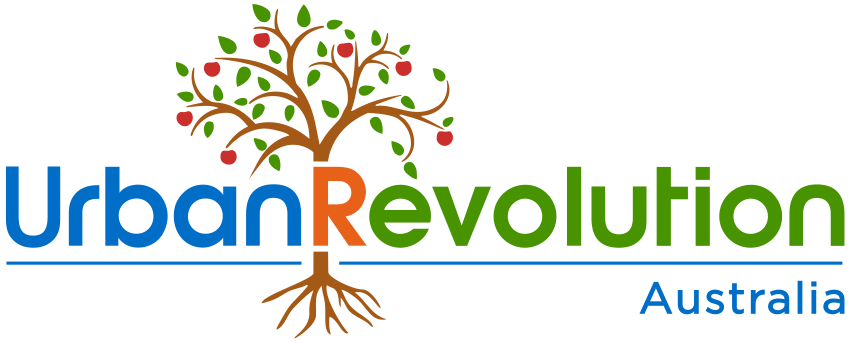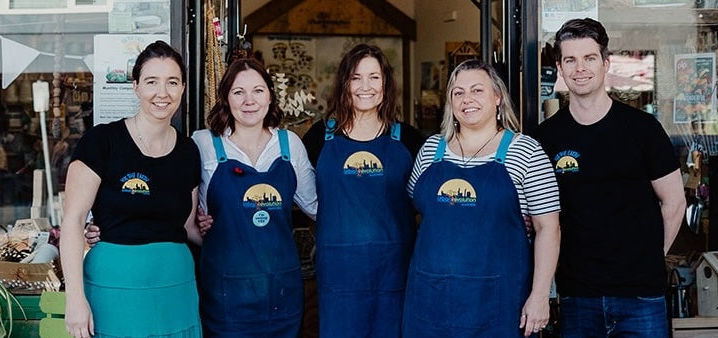For most households, the kitchen is the biggest culprit of single-use plastic! Fortunately, there are plastic-free alternatives to almost all single-use plastic items, it is just a matter of having the right equipment to transform your kitchen into a clean, toxic-free and plastic-free oasis.
It is important to note that you should use your old things to the end of their lives before making the swap to eco-friendly alternatives, and remember that it's not all about being perfect straight off the bat! Every small change you make is one less single-use plastic item ending up in landfill, which can add up to make a big difference! Good luck and have fun!

Image from here
1. Cook and store food without single-use plastic
This may seem like a simple task, but most Australian households today still use single-use cling wrap, baking paper, coffee pods, tea bags and pre-packaged meals on a daily basis. This Plastic Free July, perhaps you can cook and store your meals and snacks without single-use plastic.
- Cooking your own food from fresh, raw ingredients is not only better for you but also immediately eliminates single-use meal packaging.
- Swap to reusable and eco-friendly alternatives to baking paper and aluminium foil.
- Use reusable containers, glass jars and alternatives to cling wrap such as Agreena wraps and beeswax wraps for leftovers.
- If you are worried about the life of your fresh fruit and veg without wrapping them in plastic, The Swag is a wonderful natural and Australian-made fresh produce storage bag that significantly lengthens the life of your raw fruit and veg!
- Use silicone snack bags, food pouches and bowl covers for easy, reusable plastic-free food storage.
One of the most common questions we get is about how to freeze food without plastic. Silicone snack bags and food pouches are great for this purpose, otherwise you can always freeze food in glass jars! Save and reuse glass jars from the kitchen for freezing almost any food, from meals to home-made ice cream. Just make sure to freeze your jars of food without the lid first, and pop the lid on later to avoid pressure buildup as the contents freeze and expand. Being able to reheat your food inside the jars is also handy (without the worry of toxic chemicals leeching into your food from plastic). This is a great article about storing and freezing food without plastic if you would like to read more on this topic.



2. Make tea and coffee without waste
Did you know that the majority of tea bags contain plastic? Yep, even paper bags often use polypropylene to seal. This means they - like all other single-use plastics - are destined for polluting natural environments and, unfortunately, are likely releasing microplastics into your drink.
- Switch to a stainless steel tea infuser, organic cotton reusable tea bag, or a bottle with an inbuilt tea infuser which allows you to use loose-leaf tea instead of tea bags (also much cheaper!).
- Swap to reusable coffee capsules which allow you to refill a single stainless steel pod with fresh ground coffee instead of having to continually buy more single-use pods. It's cheaper in the long-run and you can use freshly ground local coffee!
- In the meantime, use this TerraCycle Map to see where you can drop off your used aluminium pods for recycling.



3. Grow your own food
Growing your own food not only saves you money but also eliminates any single-use plastic food packaging. Here are some easy ideas of what you can grow at home:
- Mushrooms with a Mushroom Grow Kit.
- Microgreens with a Windowsill Microgreen Growing Kit.
- Use a GreenSmart self-watering pot or a Waterpot Olla for easy, low-maintenance growing.
- Grow fresh, nutritious food from organic, heirloom WA seeds to avoid single-use plastic seedling pots.



4. Wash up in the kitchen without plastic
Choose to buy plastic-free kitchen and cleaning products that won't end up in landfill or polluting natural environments at the end of their lives by choosing compostable or recyclable materials. Look for products made from cotton, hemp, coconut fibre, wood and/or metal. Here are some examples of easy eco-friendly swaps:
- Cotton or hemp dish cloths, coconut fibre or copper scourers, natural sponge alternatives and natural dish brushes.
- Choose natural and greywater-safe dishwashing detergents such as natural dishwashing liquid or natural dishwasher powder. Even better, choose totally zero waste options like dish soaps and use with a soap cage for easy use.
- Choose natural vegetable brushes for washing fruit & veg without causing harm.
Click here to see our full range of eco-friendly home products.



Read more:
- How to shop for groceries without plastic
- How to eat and drink out without single-use plastic
- How to eliminate plastic bin liners in the kitchen
- Read more sustainable living articles






Leave a comment (all fields required)